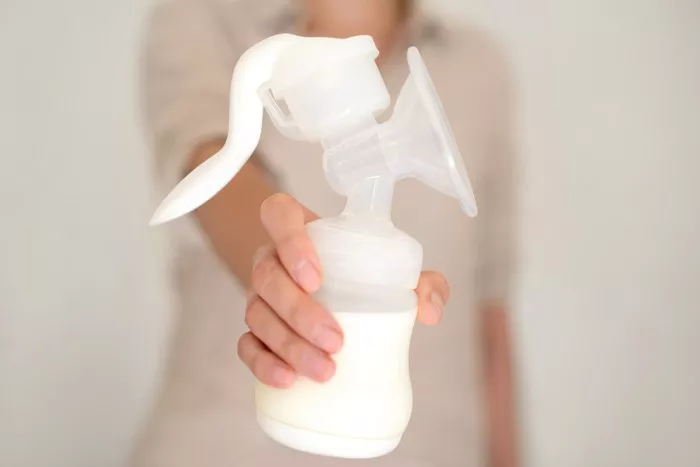Breastfeeding is a natural and important part of caring for your newborn. Many parents wonder about the temperature of breast milk and whether it is safe to give cold milk to baby. This article will provide guidance on this topic and help you understand the best practices for feeding your newborn.
Understanding Breast Milk Temperature
Breast milk can be given to your baby at various temperatures. It is important to know that breast milk is naturally warm when it comes directly from the breast. Many mothers find that their baby prefers milk that is closer to body temperature. However, cold breast milk is also safe.
Safety of Cold Breast Milk
You might be concerned about giving your newborn cold breast milk. However, it is generally safe. Cold milk will not harm your baby. Infants are resilient and can handle different temperatures.
Health Recommendations
The American Academy of Pediatrics (AAP) states that breast milk can be served at room temperature or cold. There is no evidence to suggest that cold milk is harmful. If your baby takes cold breast milk without any issues, it is perfectly acceptable to continue doing so.
Preparing Cold Breast Milk
If you have stored breast milk in the refrigerator or freezer, you may wonder how to prepare it for feeding. Here are steps to safely prepare cold breast milk:
Thawing Frozen Milk
If the milk is frozen, it is essential to thaw it safely. You can do this by placing the milk in the refrigerator overnight. You can also use warm water to thaw it quickly. Avoid using a microwave, as it can create hot spots and destroy some nutrients.
Using Refrigerated Milk
If you have refrigerated breast milk, you can use it directly. Many babies accept cold milk without any problem. If you notice your baby is hesitant, you can gradually introduce it by mixing cold milk with warmer milk.
Feeding Your Newborn Cold Breast Milk
When it comes to feeding your newborn, here are some tips:
Observe Your Baby’s Preferences
Every baby is different. Some may prefer warm milk, while others may accept cold milk without issue. Pay attention to your baby’s cues. If your baby drinks cold milk happily, there is no need to warm it.
Gradual Introduction
If you want to give cold milk but are unsure how your baby will react, start with small amounts. Gradually increase the amount of cold milk you offer. This way, your baby can adjust to the temperature.
Benefits of Cold Breast Milk
You may wonder why some parents choose to give cold breast milk. Here are some benefits:
Convenience
Cold breast milk is convenient. If you have just taken milk out of the fridge, you can feed it directly. This saves time, especially during nighttime feedings when you might be tired.
Nutritional Value
Breast milk retains its nutritional value, regardless of temperature. Whether cold or warm, the nutrients, antibodies, and benefits of breast milk remain intact. Your baby will receive the same nourishment.
Common Concerns
Some parents have concerns about giving cold breast milk. Here are some common worries and the facts behind them:
Gas and Discomfort
Some parents believe that cold milk may cause gas or discomfort in their baby. While each baby reacts differently, there is no scientific evidence to support this claim. If your baby seems uncomfortable after eating cold milk, consider warming it slightly.
Feeding Schedule
Feeding schedules can be affected by the temperature of the milk. Some parents find that babies may drink less when given cold milk. If this happens, you may want to offer smaller, more frequent feedings.
When to Consult a Pediatrician
If you have any concerns about feeding your newborn, it’s always a good idea to consult your pediatrician. Here are some situations where you should seek advice:
If your baby refuses to eat cold milk consistently
If your baby shows signs of discomfort after feeding
If you have questions about storage and handling of breast milk
Tips for Storing Breast Milk
Storing breast milk properly is crucial for maintaining its quality. Here are some tips:
Use Clean Containers
Always use clean and sterilized containers to store breast milk. Glass bottles or BPA-free plastic bags work well. Label each container with the date and time to keep track of freshness.
Refrigeration Guidelines
Fresh breast milk can be stored in the refrigerator for up to four days. If you need to store it longer, consider freezing it. Frozen breast milk can last for about six months in a regular freezer.
Transitioning to Solid Foods
As your baby grows, you will eventually introduce solid foods. This transition usually occurs around six months. During this time, continue to breastfeed as it provides essential nutrients.
When introducing solids, you may want to offer a variety of temperatures to your baby. This includes warm, room temperature, and cold foods. It helps your baby adapt to different textures and temperatures.
See also: What Can I Do For An Infant With A Cold
Conclusion
In summary, giving your newborn cold breast milk is safe. Whether you choose to warm it or offer it cold depends on your baby’s preferences. The key is to observe your baby and respond to their needs.
Breast milk is a wonderful source of nutrition for your infant. It remains nutritious and beneficial, regardless of temperature. With proper storage and preparation, you can ensure that your baby receives the best care possible.
Always trust your instincts as a parent. If you have concerns about your baby’s feeding habits, don’t hesitate to reach out to your pediatrician. Your baby’s health and comfort are what matter most.


